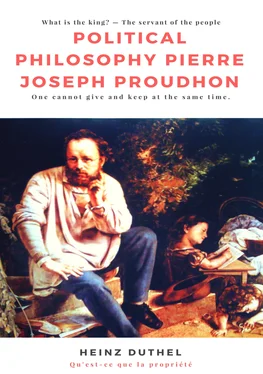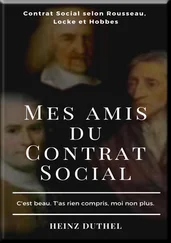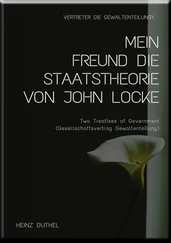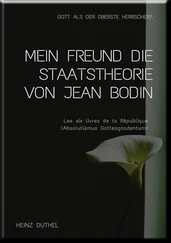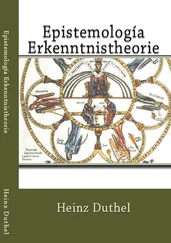1 ...8 9 10 12 13 14 ...20 Is the authority of man over man just?
Everybody answers, "No; the authority of man is only the authority of the law, which ought to be justice and truth." The private will counts for nothing in government, which consists, first, in discovering truth and justice in order to make the law; and, second, in superintending the execution of this law. I do not now inquire whether our constitutional form of government satisfies these conditions; whether, for example, the will of the ministry never influences the declaration and interpretation of the law; or whether our deputies, in their debates, are more intent on conquering by argument than by force of numbers: it is enough for me that my definition of a good government is allowed to be correct. This idea is exact. Yet we see that nothing seems more just to the Oriental nations than the despotism of their sovereigns; that, with the ancients and in the opinion of the philosophers themselves, slavery was just; that in the middle ages the nobles, the priests, and the bishops felt justified in holding slaves; that Louis XIV. thought that he was right when he said, "The State! I am the State;" and that Napoleon deemed it a crime for the State to oppose his will. The idea of justice, then, applied to sovereignty and government, has not always been what it is to-day; it has gone on developing and shaping itself by degrees, until it has arrived at its present state. But has it reached its last phase? I think not: only, as the last obstacle to be overcome arises from the institution of property which we have kept intact, in order to finish the reform in government and consummate the revolution, this very institution we must attack.
Is political and civil inequality just?
Some say yes; others no. To the first I would reply that, when the people abolished all privileges of birth and caste, they did it, in all probability, because it was for their advantage; why then do they favor the privileges of fortune more than those of rank and race? Because, say they, political inequality is a result of property; and without property society is impossible: thus the question just raised becomes a question of property. To the second I content myself with this remark: If you wish to enjoy political equality, abolish property; otherwise, why do you complain?
Is property just?
Everybody answers without hesitation, "Yes, property is just." I say everybody, for up to the present time no one who thoroughly understood the meaning of his words has answered no. For it is no easy thing to reply understandingly to such a question; only time and experience can furnish an answer. Now, this answer is given; it is for us to understand it. I undertake to prove it.
We are to proceed with the demonstration in the following order: —
I. We dispute not at all, we refute nobody, we deny nothing; we accept as sound all the arguments alleged in favor of property, and confine ourselves to a search for its principle, in order that we may then ascertain whether this principle is faithfully expressed by property. In fact, property being defensible on no ground save that of justice, the idea, or at least the intention, of justice must of necessity underlie all the arguments that have been made in defence of property; and, as on the other hand the right of property is only exercised over those things which can be appreciated by the senses, justice, secretly objectifying itself, so to speak, must take the shape of an algebraic formula.
By this method of investigation, we soon see that every argument which has been invented in behalf of property, whatever it may be, always and of necessity leads to equality; that is, to the negation of property.
The first part covers two chapters: one treating of occupation, the foundation of our right; the other, of labor and talent, considered as causes of property and social inequality.
The first of these chapters will prove that the right of occupation obstructs property; the second that the right of labor destroys it.
II. Property, then, being of necessity conceived as existing only in connection with equality, it remains to find out why, in spite of this necessity of logic, equality does not exist. This new investigation also covers two chapters: in the first, considering the fact of property in itself, we inquire whether this fact is real, whether it exists, whether it is possible; for it would imply a contradiction, were these two opposite forms of society, equality and inequality, both possible. Then we discover, singularly enough, that property may indeed manifest itself accidentally; but that, as an institution and principle, it is mathematically impossible. So that the axiom of the school — ab actu ad posse valet consecutio: from the actual to the possible the inference is good — is given the lie as far as property is concerned.
Finally, in the last chapter, calling psychology to our aid, and probing man's nature to the bottom, we shall disclose the principle of justice — its formula and character; we shall state with precision the organic law of society; we shall explain the origin of property, the causes of its establishment, its long life, and its approaching death; we shall definitively establish its identity with robbery. And, after having shown that these three prejudices — the sovereignty of man, the inequality of conditions, and property — are one and the same; that they may be taken for each other, and are reciprocally convertible, — we shall have no trouble in inferring therefrom, by the principle of contradiction, the basis of government and right. There our investigations will end, reserving the right to continue them in future works.
The importance of the subject which engages our attention is recognized by all minds.
"Property," says M. Hennequin, "is the creative and conservative principle of civil society. Property is one of those basic institutions, new theories concerning which cannot be presented too soon; for it must not be forgotten, and the publicist and statesman must know, that on the answer to the question whether property is the principle or the result of social order, whether it is to be considered as a cause or an effect, depends all morality, and, consequently, all the authority of human institutions."
These words are a challenge to all men of hope and faith; but, although the cause of equality is a noble one, no one has yet picked up the gauntlet thrown down by the advocates of property; no one has been courageous enough to enter upon the struggle. The spurious learning of haughty jurisprudence, and the absurd aphorisms of a political economy controlled by property have puzzled the most generous minds; it is a sort of password among the most influential friends of liberty and the interests of the people that equality is a chimera! So many false theories and meaningless analogies influence minds otherwise keen, but which are unconsciously controlled by popular prejudice. Equality advances every day — fit aequalitas. Soldiers of liberty, shall we desert our flag in the hour of triumph?
A defender of equality, I shall speak without bitterness and without anger; with the independence becoming a philosopher, with the courage and firmness of a free man. May I, in this momentous struggle, carry into all hearts the light with which I am filled; and show, by the success of my argument, that equality failed to conquer by the sword only that it might conquer by the pen!
Footnotes
In Greek, skeptikos — examiner; a philosopher whose business is to seek the truth.
Religion, laws, marriage, were the privileges of freemen, and, in the beginning, of nobles only. Dii majorum gentium — gods of the patrician families; jus gentium — right of nations; that is, of families or nobles.
The slave and the plebeian had no families; their children were treated as the offspring of animals. Beasts they were born, beasts they must live.
Читать дальше
